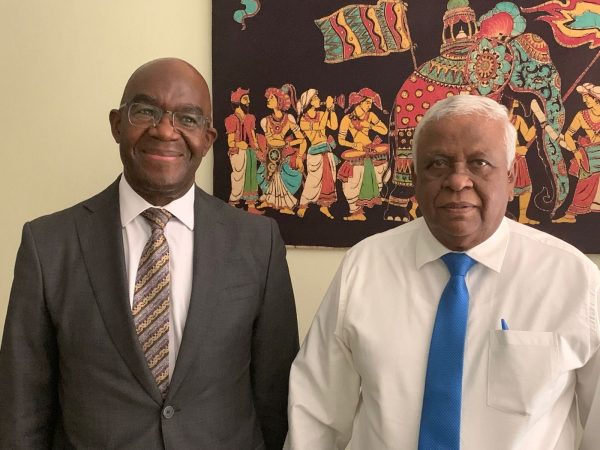
Sri Lanka’s ambassador to South Africa held a flurry of meetings with officials in the country this week, as Colombo sought to rally international support around its much-criticised human rights record and lack of accountability for mass atrocities ahead of the UN Human Rights Council session.
Siresena Amarasekara, High Commissioner of Sri Lanka to South Africa, reportedly met with several senior officials in the country including government officials and ambassadors from other countries posted in South Africa in an effort to drum up international support.
According to an official Sri Lankan press release, Amarasekara claimed that international involvement in pressing for accountability for mass atrocities “further complicates ethnic issues”.
He went on to claim that the current regime in Sri Lanka “has the authority, wish, and capacity to resolve it,” despite several of the accused now in senior government positions and with the regime having consistently rejected any form of accountability.
Sri Lanka’s current president, prime minister, defence secretary and army chief are amongst the senior-most accused war criminals who played major roles in a 2009 offensive that killed tens of thousands of Tamil civilians. Hospitals were bombed, sexually violence deployed and surrendering Tamils executed in violence that has been increasingly recognised as a genocide.
Though Amarasekara did not admit that such widespread violations had occurred he did admit that the current regime “is compelled to sacrifice its meagre resources to play a defensive role” on the international stage.
This month sees the start of the 49th UN Human Rights Council session, where once again Sri Lanka is set to be discussed. Several resolutions have been passed by the global body, but almost 13 years since the massacres were committed, no one has been held accountable.
See more on the crimes that took place in that period here: 12 years today - A massacre in Mullivaikkal
